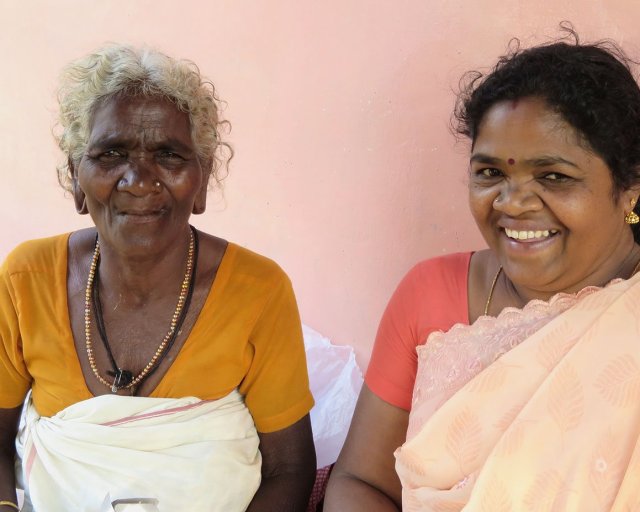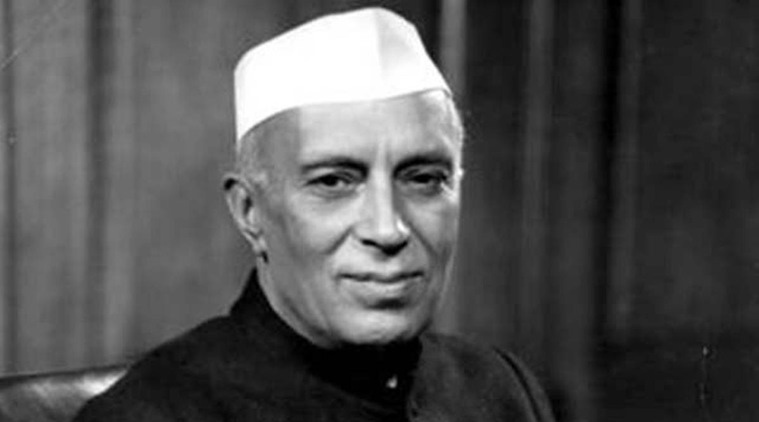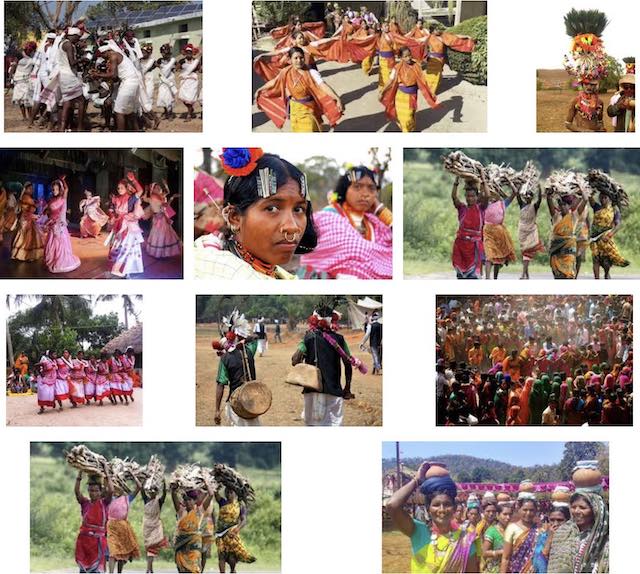
“The forest in Shanthi Teacher’s classroom” on Ruralindiaonline.org >>
More about Tribal elders & Women >>
Success stories >>
“National development and the development of tribal communities are linked to each other” – Droupadi Murmu | Learn more >>
“Tribal communities are a standing example of how women play a major role in preservation of eco historic cultural heritage in India.” – Mari Marcel Thekaekara (writer and Co-Founder of ACCORD-Nilgiris) | Learn more >>
“When you are leaving 60 percent of the people behind, you cannot have the ambition to be an economic power.” – Poonam Muttreja (Executive Director of the Population Foundation of India) >>
“Women and girls are disproportionately affected by modern slavery. As they transition through childhood, adolescence and adult life, the impacts of discrimination multiply and gender inequality grows.” – Walk Free Foundation | Learn more >>
“There is no social bias against women in tribal communities such as there exists among the middle castes, especially landed ones. Women can ask for a divorce, and in many communities, money is paid to the girl’s family at the time of marriage.” – Abhay Bang, the award-winning doctor and social activist from Gadchiroli in Maharashtra | Learn more >>
Adivasi people: proud not primitive | Read the full article >>
[…] Defining what’s special about India’s adivasi or indigenous people is complicated. People, mostly anthropologists and human rights defenders, who know adivasis and have worked closely with them, also tend to be accused of romanticizing tribal peoples. Yet you can begin to understand what’s special about them if you read India’s first Prime Minister Jawarharlal Nehru’s lyrical descriptions about the tribes of India. In his Panchsheel [“Five Principles”], or development guidelines, he begged our civil servants to respect adivasis and for Tribal Belt development to focus on ‘respecting their own genius’, not turning them ‘into pale imitations of ourselves’.

Photo © Indian Express
Yet almost 66 years after Independence, India’s adivasi people continue to be treated shabbily. They are described practically universally, in even our best newspapers and magazines, as primitive and backward. Our media is totally ignorant about the meaning of adivasi culture and history. It is common on major festivals to see them depicted perhaps as ‘noble savages’, dancing in feathers and grass skirts, for an uninformed public to gawk at like creatures in a zoo.
When we arrived in the Nilgiris in 1984, my husband Stan and I often asked young adivasi people what they thought the word adivasi, ‘original people’ in Sanskrit, meant. Their replies were predictable. They answered ‘ignorant, uncivilized, wild, jungle folk, illiterate, uneducated and even stupid people’. Children joining local schools had their adivasi names changed by their teachers and were instructed to civilize their communities. They were taught to feel ashamed of their people and their culture. Since 1986, we have aimed to help these communities assert their rights, especially over land. Also to join the outside ‘mainstream’ if they so wished, on their own terms, with pride in their culture, with heads held high. We consistently worked on issues of pride and self-esteem.
So, the news that Survival International has launched a campaign called ‘Proud not Primitive’ is really welcome. Adivasis constitute nine per cent of the Indian population. They once led lives of quiet dignity. Now they live and die in quiet desperation.
‘Development’ in the areas where adivasi people live leaves them exploited and deprived, in total contradiction to Nehru’s beautifully worded Panchsheel. The reality of the adivasi existence, most of the nine per cent, is nothing short of shameful. […]
The forest department has criminalized their existence, treating them as intruders when in fact the recent Forest Rights Act acknowledged the historical injustice perpetrated on them and declared that their rights to an ancient forest heritage would finally be recognized.
Adivasi people have an alternative world view, which has rarely been acknowledged or recognized. Their existence was never based on accumulation or consumerism. To understand the cliché, they have a ‘symbiotic relationship with nature’, needs close observation of a forest community. They took what they needed from nature, but never in excess. They never hoarded. This is viewed by non-tribal neighbours as ‘lazy’ and unambitious. They never had a need to subdue, conquer or master nature. So, unlike their neighbours, they did not cut down vast tracts of forest. They plant vegetables between the trees. […]
It is in this context that Survival India’s campaign is sorely needed. There is a new generation of adivasis educated in the dominant society’s ‘world view’ who are beginning to look back at their own heritage and culture, Alex Hailey-like, to their ‘roots’.
This cultural revival is crucial for the survival of the adivasi world view, the only truly sustainable lifestyle when the world is looking desperately for solutions to save the earth. […]
All of us can learn from them. And it’s about time we started.
Source: “Adivasi people: proud not primitive” by Mari Marcel Thekaekara, New Internationalist 15 July 2013
Address : https://newint.org/blog/2013/07/15/india-adivasi-survival-international/?55521117611331971
Date Visited: 7 March 2022

“Is it eccentric to live in beautiful scenery in the hills among some of the most charming people in the country, even though they may be ignorant and poor?” – Verrier Elwin quoted by G.N. Devy in The Oxford India Elwin >>
Up-to-date reports by Indian experts and journalists
Search tips
Combine the name of any particular state, language or region with that of any tribal (Adivasi) community.
Add keywords of special interest (music, poetry, dance just as health, sacred grove and biodiversity); learn about the rights of Scheduled Tribes such as the “Forest Rights Act” (FRA); and the United Nations “Declaration on the Rights of Indigenous Peoples”, “Universal Declaration of Human Rights”, “women’s rights”, or “children’s right to education”.
Ask a question that includes “tribal” or “Adivasi”, for instance: “Adivasi way of life better?” (or “tribal way of life worse?”)
Specify any particular issue or news item (biodiversity, bonded labour and human trafficking, climate change, ecology, economic development, ethnobotany, ethnomedicine, global warming, hunter-gatherers in a particular region or state, prevention of rural poverty, water access).
For official figures include “scheduled tribe ST” along with a union state or region: e.g. “Chhattisgarh ST community”, “Himalayan tribe”, “Scheduled tribe Tamil Nadu census”, “ST Kerala census”, “Particularly Vulnerable Tribal Group Jharkhand”, “PVTG Rajasthan”, “Adivasi ST Kerala”, “Adibasi ST West Bengal” etc.
In case the Google Custom Search window is not displayed here try the following: (1) toggle between “Reader” and regular viewing; (2) in your browser’s Security settings select “Enable JavaScript” | More tips >>
Note: hyperlinks and quotes are meant for fact-checking and information purposes only | Disclaimer >>
List of websites covered by this Google custom search engine
Academia.edu (platform for academics to share research papers) – www.academia.edu
Archive.org – https://archive.org
Centre for Science and Environment – https://www.cseindia.org
Current Conservation – https://www.currentconservation.org
Development and Cooperation (D+C) https://www.dandc.eu
Down To Earth (India) – www.downtoearth.org.in
India Environment Portal – www.indiaenvironmentportal.org.in
Harnessing Nature Magazine – https://harnessingnature.online
Mongabay-India – https://india.mongabay.com
M S Swaminathan Research Foundation – www.mssrf.org
Navdanya (protecting India’s biodiversity based food heritage) – https://navdanya.org
Third World Network (Penang, Malaysia) – https://twn.my
The Shola Trust (nature conservation in the Nilgiri region) – www.thesholatrust.org

Indian online periodicals and platforms | Images view >>
~ ~ ~
Personalize your CustomSearch by combining other search words >>
(e.g. name of a tribal community and region, a craft, or dance and puppetry)
Research the above issues with the help of Shodhganga: A reservoir of theses from universities all over India, made available under Open Access >>
Note: hyperlinks and quotes are meant for fact-checking and information purposes only | Disclaimer >>
Read more posts by Mari Marcel Thekaekara >>
[Bold typeface added above for emphasis]
“The natural wealth with which much of tribal India is endowed is also its bane. […] The Adivasi is wedged between the state programme for development, meaning mines, dams, steel plants and roads, and a private agenda for quick money, which is currently termed ‘real estate’.” – Madhu Ramnath, Preface for Woodsmoke and Leafcups >>

Library copies: Worldcat.org >>
Gandhian social movement >>
“Air is free to all but if it is polluted it harms our health… Next comes water… From now on we must take up the effort to secure water. Councillors are servants of the people and we have a right to question them.” – Mohandas K. Gandhi, Ahmedabad address on 1 January 1918; quoted by his grandson, Gopalkrishna Gandhi, in On another New Year’s Day: Mahatma Gandhi’s ‘khorak’ a 100 years ago | Learn more >>
See also
ACCORD – Action for Community Organisation, Rehabilitation and Development
Articles by Mari Marcel Thekaekara (writer and Co-Founder of ACCORD-Nilgiris)
Ashwini community health programme
Childhood | Childrens rights: UNICEF India | Safe search
eJournals, eBooks & reports | eLearning
eBook | Background guide for education
Education and literacy | Right to education
Forest Rights Act (FRA) | Legal rights over forest land
Gudalur | Communities: Paniya | Kattunayaka | Mullukurumba | Bettakurumba
Health and nutrition | Recommendations by the Expert Committee
Shola Trust | Nilgiri biosphere
Western Ghats – tribal heritage & ecology
What is the Forest Rights Act about?
Who is a forest dweller under this law, and who gets rights?